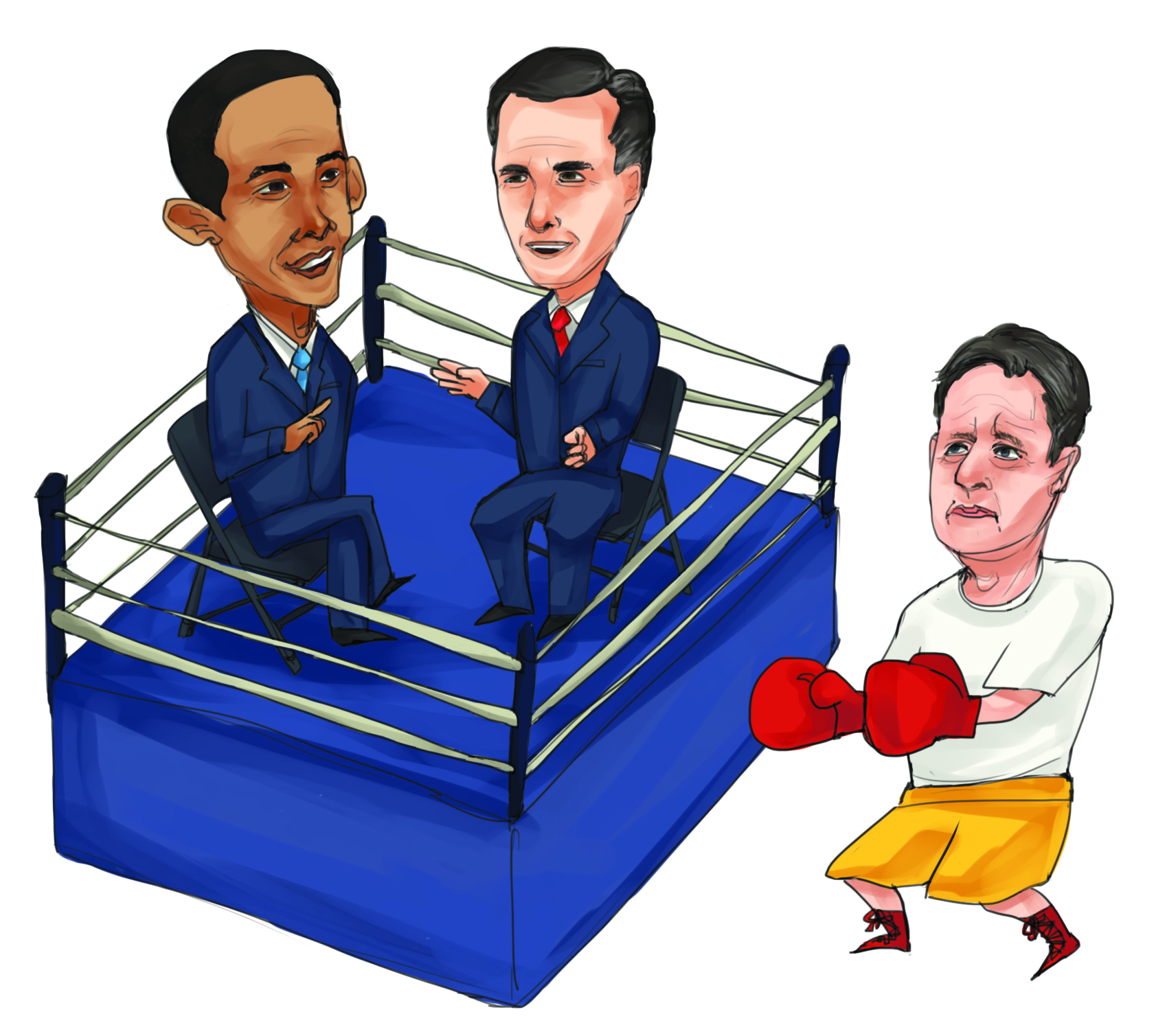When UCLA students tune into the presidential debates tonight, there will be a podium and speaker missing from that brightly lit stage ““ the presidential candidate running on the Libertarian ballot, two-time New Mexico Governor Gary Johnson.
Regardless of your political allegiance ““ and even if you consider his views off-putting ““ hosting a candidate like Johnson in tonight’s debate would serve to strengthen and broaden national discourse in this election.
By bringing to the table views on issues largely sidelined by the red and blue in this presidential election, an alternative candidate like Johnson could apply pressure to the infomercial-esque talking points of the Obama-Romney camps.
Whether you have heard of him or not, Johnson has one asset that should make him hit home with us here at UCLA ““ his vice presidential candidate and former Bruin Judge Jim Gray.
And the libertarian perspective has certainly demonstrated its appeal to college students this year, but my further testament to these candidates stems from the fact that I have been given the opportunity to speak to both of them on a one-on-one basis.
Last week, walking down Landfair Avenue, I received a call from an unidentified number.
It was Gray, calling for a quick interview. Promptly pulling my notebook from my back pocket, I had a 30-minute conversation with Gray right there on the sidewalk.
Aside from our discussion of libertarian platforms, Gray gave me a rundown of the highlights of his time at UCLA: beating Arthur Ashe at table tennis, seeing Miles Davis in concert, watching the 1965 freshman basketball team led by Lew Alcindor, now better known as Kareem Abdul-Jabbar, and even listening to Dr. Martin Luther King Jr. speak.
When Johnson came to campus last year, he entertained a crowd that likely did not surpass 50 people and still stayed after to field one-on-one questions despite his minimal audience.
On top of their down-to-earth personalities, the two stand for principles that would shake up the repetitive punch lines delivered by the mainstream candidates.
By nature, a debate should serve to shed light on candidates in a manner that will clearly highlight their differences on a public stage.
But this November, significant differences between major party candidates seem few and far between.
In this manner, a candidate who places emphasis on otherwise underrepresented issues such as drug policy and the state of the Federal Reserve would broaden the scope of the debate and emphasize the wide overlap in policy positions and other campaign platforms of mainstream candidates.
Neither Barack Obama nor Mitt Romney has platforms that would curtail our foreign aid and military spending, audit the federal reserve or end the legislation that allows warrantless seizures and domestic wiretapping.
Perhaps foremost in the minds of many Americans, neither candidate comes anywhere close to adequately addressing our budget deficit, a burden that will be wholly placed on our generation in the future.
Johnson’s proposals involving the downsizing of the federal government by abolishing the federal income tax and establishing a flat consumption tax are fresh and exciting takes on an economic problem voters have carried for years.
Realistically, Johnson will not win the election. But by refusing his bid to join the debate, any chance at real discourse tonight will be little more than a smokescreen.
Johnson’s positions on drug policy, foreign wars and the role of government lend him broad appeal to both ends of the political spectrum with his pairing of extreme fiscal conservatism and absolute social liberalism.
Can the same be said of the mainstream candidates? The bipartisan chokehold in our nation’s capital is becoming a widely acknowledged issue.
Already, three sponsors of the presidential debates have dropped their backing of the event due to the exclusion of Johnson. Because of the pressure applied by Johnson supporters, nonpartisan groups such as Philips Electronics and the Young Women’s Christian Association have now declined to sponsor the debates because they do not want to appear to support purely bipartisan politics.
It is ever apparent that the two-party system is failing us when a Democratic Obama administration continues the worst of his Republican predecessor’s policy ““ from the escalation of wars abroad to unbridled domestic spending and an attack on our civil liberties through the Patriot Act and expansion of the National Defense Authorization Act.
And if the presidential seat swings to Romney, it seems just as unlikely the tides of policy change will breach the shores of the country in any new way come January.
Unfortunately, a good man and his ideals will be missing tonight, and those looking elsewhere than the mainstream will have to continue searching for answers in alternative media.
Email Ugarte at rugarte@media.ucla.edu. Send general comments to opinion@media.ucla.edu or tweet us @DBOpinion.
